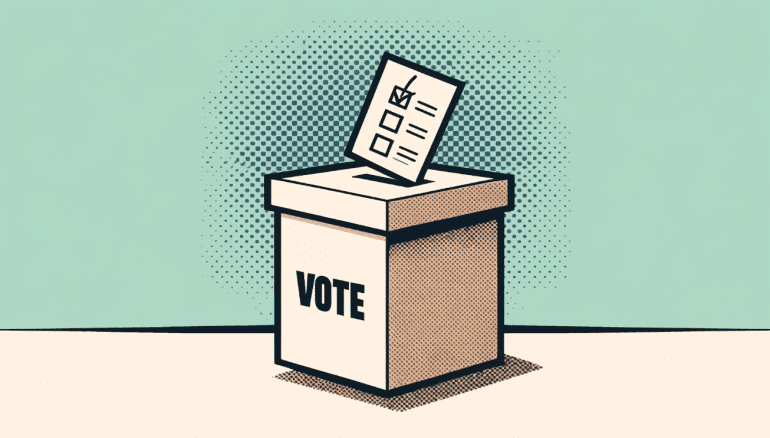- Microsoft and OpenAI team up to address the rising threat of AI-generated deepfakes in elections.
- $2 million initiative aims to counter manipulation of voters and uphold democratic integrity.
- Concerns arise over the influence of AI on vulnerable communities during global elections involving 2 billion people across 50 countries.
- Major tech companies pledge to tackle deepfake risks and develop a common framework to address misinformation.
- OpenAI introduces a deepfake detection tool and joins the steering committee of the Coalition for Content Provenance and Authenticity.
- “Societal resilience fund” will support AI literacy and education initiatives for voters and marginalized groups.
- Grants will be disbursed to organizations such as OATS, C2PA, International IDEA, and PAI to enhance understanding of AI technologies.
Main AI News:
In a strategic move to safeguard democratic processes, Microsoft and OpenAI have introduced a $2 million initiative aimed at countering the escalating threat posed by AI-driven deepfakes, specifically targeting their potential to manipulate voters and erode trust in elections.
With an unprecedented 2 billion individuals set to participate in electoral events across approximately 50 nations this year, apprehensions loom regarding the susceptibility of certain demographics, particularly “vulnerable communities,” to fall prey to manipulated content disseminated through AI technologies.
The proliferation of generative AI tools, exemplified by the widespread adoption of conversational agents like ChatGPT, has given rise to a perilous landscape fraught with AI-generated deepfakes intended to propagate misinformation. Compounding the issue is the accessibility of these tools, empowering virtually anyone to fabricate counterfeit videos, images, or audio recordings featuring prominent political figures.
Recently, the Election Commission of India issued a plea to political factions, urging them to refrain from deploying deepfakes and analogous disinformation tactics in their online campaigning efforts surrounding electoral processes.
In response to these challenges, major technology enterprises, including Microsoft and OpenAI, have voluntarily committed to mitigating such risks. Additionally, collaborative endeavors are underway to devise a unified framework for addressing deepfakes engineered explicitly to deceive voters.
Meanwhile, prominent AI firms have taken proactive measures to confront these threats, implementing restrictions within their platforms. Notably, Google has prohibited its Gemini AI chatbot from engaging with election-related inquiries, while Meta, the parent company of Facebook, has imposed limitations on election-focused responses delivered by its AI-powered chatbot.
Today, OpenAI launched a state-of-the-art deepfake detection tool tailored for disinformation researchers. This tool is designed to identify counterfeit content generated by OpenAI’s own DALL-E image generator. Furthermore, OpenAI has assumed a seat on the steering committee of the Coalition for Content Provenance and Authenticity (C2PA), a consortium comprising industry giants such as Adobe, Microsoft, Google, and Intel.
The establishment of the “societal resilience fund” constitutes a pivotal component of this overarching commitment to fostering responsible AI practices. Microsoft and OpenAI are now channeling their efforts into enhancing AI literacy and education among voters and marginalized communities. This initiative, as outlined in a joint blog post released today, will involve disbursing grants to select organizations, including Older Adults Technology Services (OATS), the Coalition for Content Provenance and Authenticity (C2PA), the International Institute for Democracy and Electoral Assistance (International IDEA), and the Partnership on AI (PAI).
According to Microsoft, these grants are designed to foster a deeper understanding of AI and its implications across various segments of society. Notably, OATS intends to utilize its grant to develop training programs tailored for individuals aged 50 and above in the United States, focusing on imparting fundamental knowledge regarding AI technologies.
“The launch of the Societal Resilience Fund underscores Microsoft and OpenAI’s unwavering dedication to addressing the challenges and imperatives within the AI literacy and education domain,” remarked Teresa Hutson, Microsoft’s corporate VP for technology and corporate responsibility, in the blog post. “Our commitment to this cause remains steadfast, and we will persist in collaborating with like-minded organizations and initiatives that share our vision and values.”
Conclusion:
The collaboration between Microsoft and OpenAI to combat election deepfakes signifies a proactive approach by tech industry leaders to safeguard democratic processes. This initiative underscores the growing recognition of the threats posed by AI-driven manipulation and the concerted efforts to mitigate such risks. For the market, it highlights the increasing importance of responsible AI practices and the demand for innovative solutions to preserve the integrity of elections and combat misinformation.

